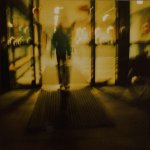hepcat
Former PH, USN
Hi Roger,
I don't think there is any 'big deal' about film. It is what it is, it does what it does. If you like using it, if you and/or your clients perceive it to have some special value, then if you feel you want to exploit that perception go for it.
...
Both film and digital are special, and neither are as well. I don't care about the market, the competition, the horrendous flood of mediocre photos swirling through the ether anymore—I have the liberty of enjoying my photography again. The only thing that gets in the way sometimes now is simply the amount of time I have to spend on it.
G
That's what I find so interesting, Godfrey. Each has its place. Each has some strengths... but I'm beginning to see that emerging "feeling"... a market among the more upscale image consumers who may *believe* that film offers something that digital doesn't... again much like the connoisseurs of vinyl albums and tube amps. If they're willing to buy that I'll be more than happy to provide it to them.
There is some truth in your concern. I think the answer is to leave the general public consumer to others and aim higher in selecting your clients. Hunt higher up the food chain, so to speak. Hunt for elk, not squirrels. One elk will provide food for many meals; one meal requires many squirrels.
If someone is looking for a $400 wedding photographer who is willing to spew out the photographic print equivalent of a tray full of White Castle hamburgers, leave that market segment to others.
Your target clients are people with more evolved taste, a more discerning eye and an appreciation of fine print quality. Aim for the clients who want filet mignon, not White Castle hamburgers. Aim for the clients who will pay $4000 for a wedding photographer, not the $400 crowd.
That would be my approach, anyway. I would have fewer clients, but I would also have to work less to generate the same amount of income. And the work itself as well as the final product (the prints) would be much more satisfying to everyone involved in the equation.
Yep... I think this thread has come full-circle as that's exactly my perspective and what my original post was about. I think I can provide a product that will appeal to a smaller, but more appreciative market who can afford that kind of service... I just need to find the way to reach that market segment effectively.



